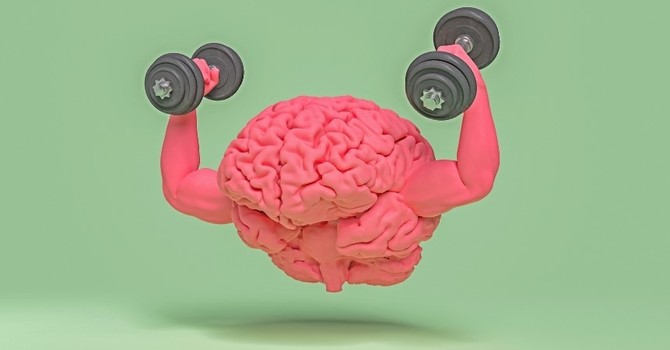Athletes and Mental Health
Approximately 7.2 million Canadians regularly engage in sports (Heritage Canada, 2013), and mental health challenges touch 1 in 5 Canadians yearly (Smetanin et al., 2011) – meaning roughly 1.4 million athletes could be struggling with mental health concerns while managing their athletic pursuits. If you are one of these athletes, you may have wondered if your challenges are unique. The answer is no – athletes, just like anyone else, can experience mental health struggles.
Contrary to long-held assumptions, athletes are not impervious to mental illness. Research now conclusively shows that athletes experience mood and anxiety disorders at rates comparable to the general population (Cornejo, 2013). The pressures they face are real, and sometimes, they don't know where to turn for support.
Unique Pressures in the World of Sports
Athletes face unique pressures that go beyond the physical aspect of their sport. Intense focus on training, expectations from coaches, teammates, and parents, and the desire to perform at high levels can strain their daily functioning. These pressures create a relationship between performance and well-being—when one suffers, the other often follows.
For example, poor performance can lead to feelings of disappointment, withdrawal, and even worthlessness. Athletes often base their self-efficacy (belief in their ability to succeed) and self-worth (respect for their own value) on their athletic performance. In other words, they develop a "Performance-Based Identity" – “I am what I do and how well I do it.” When this identity is threatened, it can be emotionally overwhelming.
Additionally, life challenges such as balancing school, family conflict, injury, or the demands of daily life can compound these feelings. This interplay between performance and personal challenges can be overwhelming, making it difficult to enjoy the sport you love.
Barriers to Seeking Help
Although there has been some progress, athletes still compete in environments where mental health is often stigmatized. Many athletes face barriers to seeking support because they fear being seen as weak or unable to handle the pressure. Even though research shows that athletes are at risk for depression and suicide, the culture of sport still discourages seeking help (Van Slingerland et al., 2018).
But here's the good news: athletes don't have to face these challenges alone.
The Power of Mental Health Professionals Who Understand Sports
The good news is that you don’t have to choose between mental well-being and athletic performance. Seeking help from a professional who understands both mental health and the world of sports can make all the difference. Working with someone who is clinically trained and has direct experience with competitive athletics provides a unique advantage. These professionals understand the complexities of balancing the demands of sport with your mental health and can provide guidance tailored specifically to your needs.
Imagine working with a therapist who not only understands mental health but also speaks your language as an athlete. They can help you navigate the challenges of performance anxiety, stress, injury recovery, and the emotional rollercoaster that often comes with competitive sports.
Why Seeking Support Matters
Taking care of your mind is just as crucial as taking care of your body. Whether you're dealing with anxiety, depression, burnout, or simply struggling to balance your athletics with life’s challenges, seeking help can be a crucial step in getting back on track. When your mental health is in a good place, your performance improves—and the two go hand in hand.
As you continue to prioritize physical training, remember that emotional/mental training is equally important. Mental health support can help you manage stress and find balance in all areas of life, so you can show up both for yourself and your sport.
The content in this blog is for informational purposes only and is not a substitute for professional medical advice, diagnosis, or treatment. Always consult your doctor or a qualified healthcare provider before trying new healthcare protocols.
References
Cornejo, B. J. (2013). Mindfullness, attention, and flow in the treatment of affective disorders in athletes. In D. A. Baron, C. L. Reardon, C. H. Baron (Eds.), Clinical Sport Psychiatry: An International Perspective (pp.124-131). John Wiley & Sons.
Heritage Canada. (2013). Sport Participation 2010 (Report no. CH24-1/2012EPDF). http://publications.gc.ca/collections/collection_2013/pc-ch/CH24-1-2012-eng.pdf.
Smetanin, P., Stiff, D., Briante, C., Adair, C.E., Ahmad, S. and Khan, M. (2011). The Life and Economic Impact of Major Mental Illnesses in Canada: 2011 to 2041. RiskAnalytica, on behalf of the Mental Health Commission of Canada https://www.mentalhealthcommission.ca/wp-content/uploads/drupal/MHCC_Report_Base_Case_FINAL_ENG_0_0.pdf
Van Slingerland, K. J., Durand-Bush, N., Rathwell, S. (2018). Levels and prevalence of mental health function in Canadian university student-athletes. Canadian Journal of Higher Education, 48(2). https://doi.org/10.47678/cjhe.v48i2.188105
Landon Gross
Contact Me


